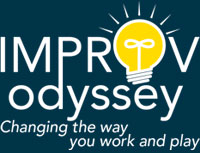Direct Experience and Peak Experiences
“What we are after is a direct experience!” – Viola Spolin
I used to think that a direct experience is the same as what Abraham Maslow called the ‘peak experience’. Maslow coined the term to describe what other people have referred to as a ‘religious experience’ as in a born again feeling where the subject is transformed and sees the world anew and ascribes it to God entering the soul. Experiments in the 1970’s using hallucinogenic drugs like psilocybin created in subjects what they called positive life-transforming feelings and awareness.
“Peak experiences are transient moments of self-actualization.” – Abraham Maslow
The direct experience I think is different. I described my first direct experience in another blog post (How I Met Viola Spolin) in the game of Mirror. It was indeed a revelation because I had never had one before in my adult life.But as I continued to study improvisation, I realized that direct experience is a state of mind where my focus is outward and the chatter in my head stops because I stop judging what I am doing. My intuition kicks in and I truly enjoy each moment of surprise while improvising. It does not have to be a transitory state. I think you can sustain it with practice and support.
There are parallels with peak experience and direct experience. Both bring about a full sense of yourself and your relation to the world. You feel connected to your fellow players, your playing space, and grounded in yourself. It feels wonderful. You feel capable, confident and happy. Maintaining a peak experience is what Maslow posited as the ultimate achievement in self-actualization. A peak experience is by its nature a brief moment of clarity brought about by some mystical or circumstantial situation. Direct Experience is more akin to what Mihaly Csikszentmihalyi calls “flow.’ Flow is the mental state of operation in which a person in an activity is fully immersed in a feeling of energized focus, full involvement, and success in the process of the activity. Many people can sustain this state for long periods of time and I think this is what Viola was after when creating her theater games and sidecoaching system. It is a state of being fully present to the moment.
“Acting requires presence. Playing produces this state.” – Viola Spolin.
Spolin recognized that “play” creates this state automatically. We can play for hours! – Or did when we were children. Coaching becomes necessary as we become adults, because we accumulate so much information and are often diverted from activity for the sake of itself (as in play). We are taught to value activity motivated by seeking the approval of others. i.e. being rewarded for ‘good’ behavior. This type of behavior supplants play and erases the fun of doing things for the sake of itself in favor of being seen as valuable to others.
This means we no longer meditate, but pre-meditate! Playing theater games and most any game worth playing is a repeatable thing and gives you access to direct experience the instant you begin having fun. The key to it is keeping the ‘ghostly voices’, the desire to please others first and foremost, and any self-conscious pre-meditated thought (playwriting) out of our head.
Acting spontaneously should be practiced often so it does not become only momentary peak experiences, but the norm.
Gary Schwartz July 2012


